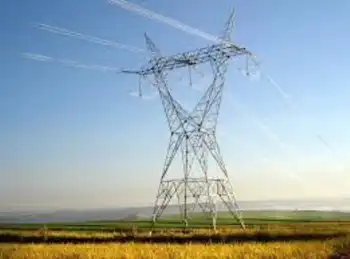Offshore wind farm stirs up tempest
By Toronto Star
Electrical Testing & Commissioning of Power Systems
Our customized live online or in‑person group training can be delivered to your staff at your location.

- Live Online
- 12 hours Instructor-led
- Group Training Available
A thousand people who overflowed the auditorium of Sir Wilfrid Laurier Collegiate on Guildwood Parkway debated the question at a meeting that mixed neighbourhood angst with debate over the pros and cons of Toronto Hydro's proposed offshore wind farm.
The first stage of the project is to place what amounts to a small weather station on a platform about two kilometres off the Scarborough Bluffs to measure wind speeds.
The platform will operate for about two years to collect the data needed to find out whether a wind farm in the lake is workable.
If conditions are favourable, Toronto Hydro would like to build about 60 turbines in the lake, sprinkled over an area 25 kilometres long, extending as far east as Ajax and as far west as the waters off the Leslie Street Spit.
But the sometimes-raucous meeting turned into a discussion over who was from Scarborough, now part of the City of Toronto. Environmental groups had bused supporters to the meeting from outside the immediate area.
That rankled John Lennie, a local resident. "You've loaded the auditorium so people in the community can't ask legitimate questions," Lennie said, pointing to the long lines of people formed behind the microphones.
"Would you consider having a community meeting without all the lobbyists and the paid people?"
Vy Hoang, another local resident, agreed. "Stand up, Scarborough," he said.
"The green people and the people they bus in are taking your opportunity to ask the questions."
But others argue the project affects everyone in Toronto and beyond.
"You know what?" asked Fyodor Snagovsky, "I live on this planet. This is an issue that goes way past Scarborough.
"This will affect you no matter where you live on earth."
Jim Prall, who works at the University of Toronto, argues that Canada is falling behind much of the world in renewable energy.
He said many university graduates that he knows have to leave Canada to find work in the renewable energy sector.
"I'd like to see some graduates find work here," he said.
Supporters of the proposed wind farm were often interrupted as they spoke by cries of "Do you live here?"
The proponent of the wind farm is Toronto Hydro Energy Services, an unregulated unit of Toronto Hydro Corp., which is owned by the City of Toronto.
The polarized feelings simply frustrated some in the audience.
Ed Linhares, who lives in Scarborough, said he'd come to the meeting simply to get information and was frustrated by the adversarial tone of the debate.
"I'm not sure I trust either one," he said of the two sides.
He pointed to one pamphlet put out by the opponents of the proposed wind farm stating that the turbines will be 121 feet high.
In fact, if they're built, they'll rise about 30 metres above the lake.
The session was Toronto Hydro's second attempt to hold an information meeting on its proposed wind farm.
An earlier meeting, scheduled four weeks ago in a small church hall, had to be cancelled when the meeting room overflowed and about 200 people were unable to get in.
Supporters of the wind turbines were taken aback at local opposition to the proposed turbines; some residents fear the lake view will be spoiled, their property values will suffer and migratory birds will be killed or disrupted.
A coalition of environmental groups encouraged their supporters to attend the meeting to support the turbines, and chartered buses to provide transport to the meeting from Kennedy subway station.
The platform and its instruments will rise four metres above the water level; they'll measure wind speed and direction, temperature and humidity.
Toronto's eastern shoreline is considered a good prospect for wind turbines because of a relatively shallow underwater reef two to four kilometres offshore, where the turbines can sit.
The turbines would be bigger than the turbine at Exhibition Place, and would generate about twice as much power.
A wind farm this size could generate up to 200 megawatts when the wind blows; one megawatt powers about 250 homes.











